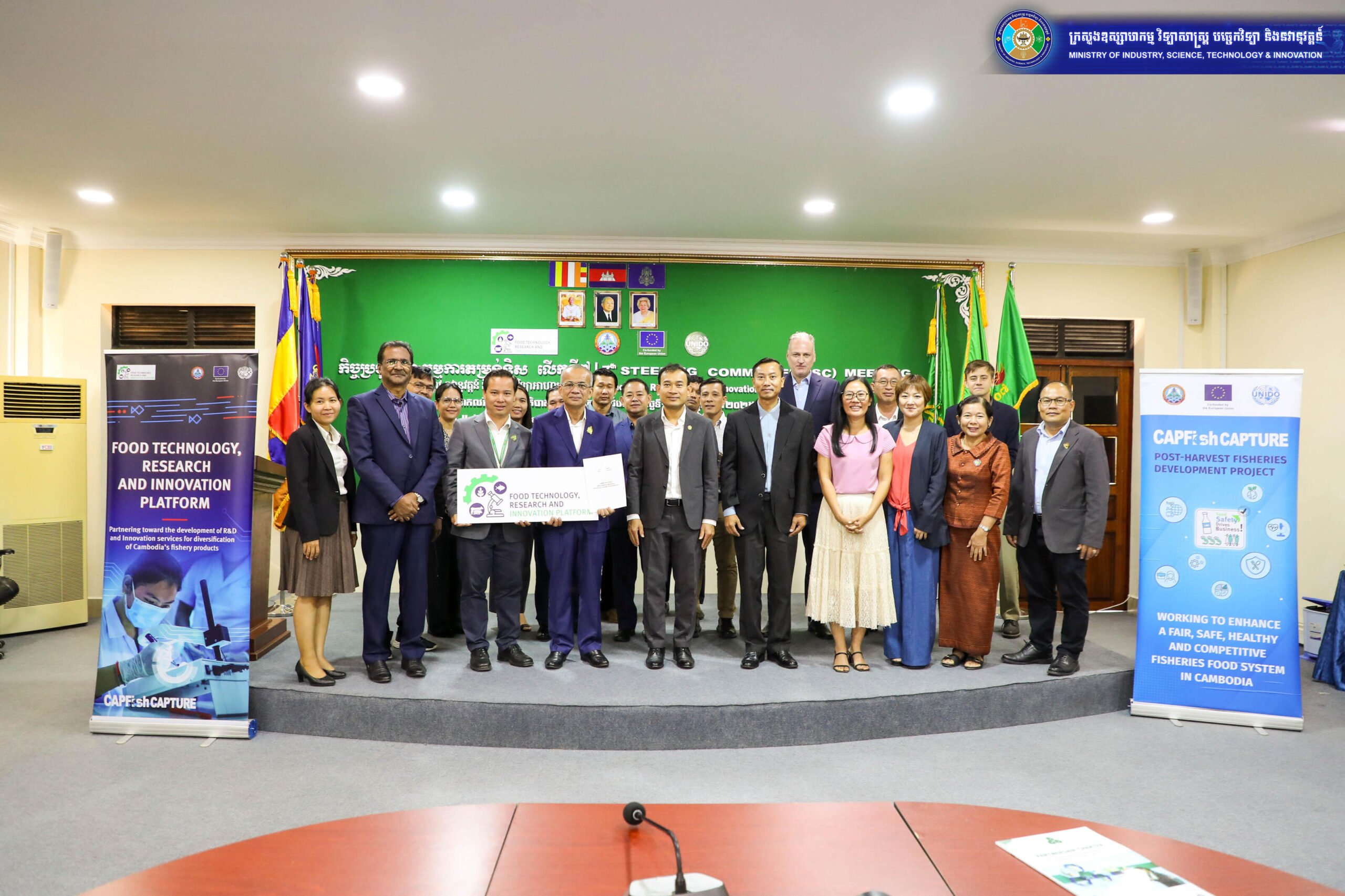
Cambodia is making progress toward its sustainable agri-food goals, as leaders from ministries-institutions, educational institutions, and industry reaffirmed their collective commitment to strengthening Food Research, Innovation, and Technology (FTRIP) at the 7th FTRIP Steering Committee Meeting held at Battambang National University on July 17, 2025.
In his opening remarks, H.E. Dr. Hul Seingheng, Undersecretary of State at the Ministry of Industry, Science, Technology & Innovation (MISTI), highlighted the alignment of FTRIP’s central mission with Cambodia’s Science, Technology & Innovation Roadmap 2030, particularly the need to create technology platforms.
“FTRIP’s primary goal is to enhance applied research capacity of our universities and to drive growth by aligning innovation with the needs of the private sector, the principal engine of Cambodia’s economic development,” he said.
The meeting reviewed progress achieved under the CAPFish-CAPTURE project—a collaborative initiative of the United Nations Industrial Development Organization (UNIDO) and the Fisheries Administration, co-financed by the European Union. As the project nears completion in late 2025, stakeholders are engaged in discussions aimed at ensuring the long-term sustainability of FTRIP beyond donor funding.
H.E. Seingheng emphasized the shared determination among FTRIP members to ensure the platform’s sustainability, stating, “To secure FTRIP’s future, all members are committed to supporting its operations until it achieves financial independence. The pledge involves sharing resources, conducting joint research, and using the platform to transfer knowledge and technology.”
A core focus of the session was FTRIP’s role in supporting Cambodia’s SMEs in the food processing sector. “We will strengthen partnerships to promote technology transfer, stimulate investment in research, and address key challenges faced by the private sector—ranging from technical processing bottlenecks to the need for higher safety standards, product development, and improved production efficiency—so that Cambodian producers can compete both locally and internationally,” H.E. Seingheng reiterated.
Momentum for FTRIP’s continued growth was also reinforced at the 8th Operation Management Committee (OMC) meeting, held a day earlier, where custodianship of the platform officially transitioned from the Institute of Technology of Cambodia (ITC) to the National University of Battambang.
Dr. Srean Pao, Vice Rector of NUBB and newly appointed OMC Chair, expressed the university’s readiness to advance FTRIP’s mission, stating, “FTRIP is rapidly becoming indispensable to resolving the challenges faced by our private sector, particularly in food processing and product innovation.”
Notable achievements of FTRIP highlighted during the meeting include the completion of 23 industry-focused research projects, the development of new academic curricula, and the implementation of capacity-building efforts for researchers.
NUBB has announced plans for the remainder of 2025, including a “Food Waste Management” training in August with a Czech expert, and the October launch of a “Modernization Package” to boost the competitiveness of Cambodian processed food products. FTRIP members will also participate in the 2025 Food and Society Conference in Ho Chi Minh City to strengthen international collaboration.
H.E. Seingheng acknowledged the collaboration and achievements of FTRIP’s partners, noting that progress resulted from effective guidance, participation, and partnership among members. He encouraged all stakeholders—including universities, government agencies, and the private sector—to support applied research and advance food production innovation, describing these as important for Cambodia’s economic growth.
By: The Ministry of Industry, Science, Technology & Innovation